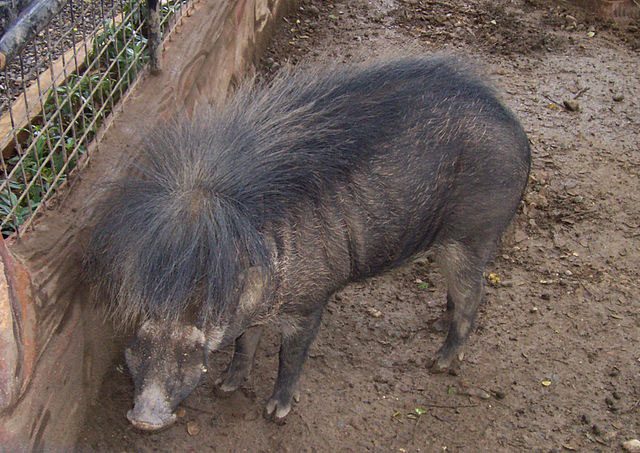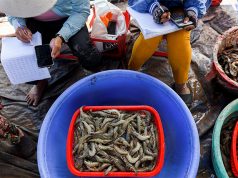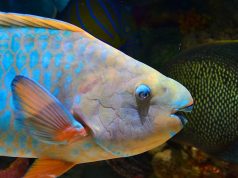An environmental group sought to spread awareness on four species of pigs endemic to the Philippines considered threatened, following the arrival of the Year of the Pig.
The Biodiversity Conservation Society of the Philippines posted an infographic on Facebook that tells the state of the Palawan bearded pig, the Mindoro warty pig, the Visayan warty pig and the Philippine warty pig, according to the International Union for Conservation of Nature.
Gong Xi Fa Cai! Kung Hei Fat Choi!This Year of the Pig, send some good fortune to our endemic wild pigs! Yes, we…
Posted by Biodiversity Conservation Society of the Philippines on Monday, February 4, 2019
It introduced the four wild pigs that have dwindling populations caused by deforestation and hunting.
“Their populations have been dwindling due to deforestation and hunting pressure, and they need more protection. Genuine wealth and prosperity can only be possible if our natural wealth gets to prosper as well. Happy Year of the Pig!” the group said.
Last January, the common tawilis or freshwater sardine was reported endangered based on the 2017 assessment of the IUCN.
The organization cited over-fishing and pollution as the main reasons for the rapid decline of its population.
IUCN’s findings
The IUCN classifies species at risk of global extinction into nine categories: Not Evaluated, Data Deficient, Least Concern, Near Threatened, Vulnerable, Endangered, Critically Endangered, and Extinct in the Wild and Extinct.
“Near threatened” describes species that are likely to be threatened in the future while “vulnerable” describes species considered to be facing a high risk of being extinct in the wild.
“Critically endangered” describes species that are at extremely high risk of being extinct in the wild.
The CNN Philippines Life recently reported at least 44 endemic or resident species of floral and fauna in the country that are assessed as at risk of being wiped out.
Palawan bearded pig
The Palawan bearded pig or sus ahoenobarbus is commonly found in the forests of Palawan, specifically within Mantalingahan, Victoria/Anepahan and Pagdanan Mountain Ranges.
The main threats seen are residential and commercial development, hunting, wood harvesting, agriculture and aquaculture, based on the assessment on June 11, 2016.
Oliver’s warty pig
The Oliver’s warty pig or sus oliveri is endemic to Mindoro’s forests and savannah grasslands.
The main threats seen for its decline in population are hunting and destruction of its forest habitats, based on the assessment on November 1, 2015.
Visayan warty pig
The Visayan warty pig or sus cebifrons is mostly found within the islands of West Visayas. Its population is now fragmented in the provinces of Negros and Panay. IUCN is not certain if there are a few left in Masbate.
The main threats are illegal logging, agricultural expansion, residential and commercial development and hunting, based on the assessment on June 11, 2016.
Philippine warty pig
The Philippine warty pig or sus philippensis is common at the Balbalasang National Park in Kalinga.
The remaining populations of these pigs are widely fragmented, the IUCN said, and may even be extinct in some provinces.
Widespread commercial logging and agricultural expansion are seen as the main threats based on the assessment on June 11, 2016.






